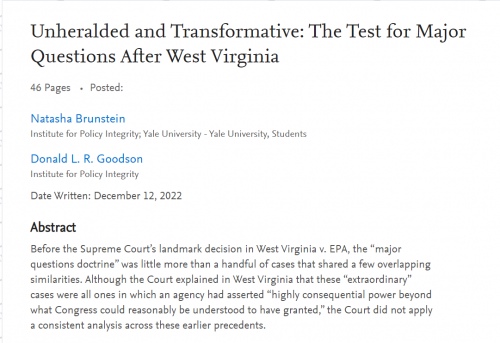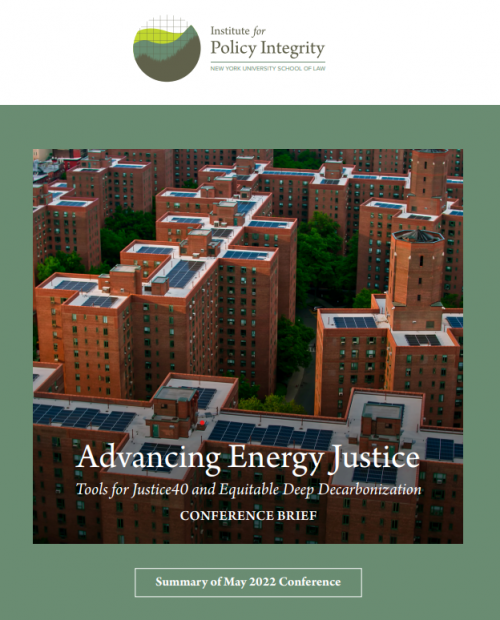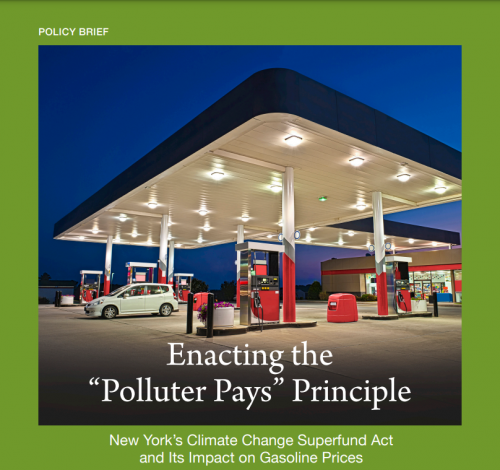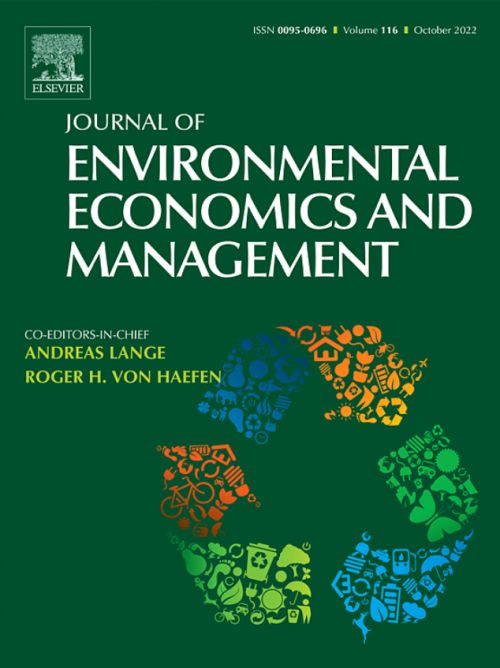The Institute for Policy Integrity produces a variety of publications. Our research reports develop in-depth research on our core issues, while our policy briefs and issue briefs provide focused analysis on more timely or particular topics. Our academic articles and working papers offer original scholarly research and analysis from established experts as well as fresh new voices.
Latest Publications
-
Still Your Grandfather‘s Boiler: Estimating the Effects of the Clean Air Act‘s Grandfathering Provisions
Working paper
While vintage differentiation is a highly prominent feature of various regulations, it can induce significant biases. We study these biases in the context of New Source Review—a program within the US Clean Air Act imposing costly sulfur dioxide (SO2) abatement requirements on new boilers but not existing ones. In particular, we empirically investigate how the differential treatment of coal boilers shaped the generation landscape by affecting unit utilization, retirement, and emissions. Focusing solely on the additional SO2 emissions, we estimate annual costs of up to $65 billion associated with the vintage differentiation in New Source Review.
-

Unheralded and Transformative: The Test for Major Questions After West Virginia
Published in William and Mary Environmental Law and Policy Review
In West Virginia v. EPA, the Supreme Court expressly relied on the “major questions doctrine” for the first time in a majority opinion to hold that a federal agency lacked authority to issue a regulation. Published in the William and Mary Environmental Law and Policy Review, this paper explores whether West Virginia provides such a framework and concludes that it does. A close look at West Virginia and the alternative frameworks that parties and others urged on the Court in the West Virginia litigation also reveals a great deal about what the major questions doctrine is not.
-

Advancing Energy Justice Conference Brief
Tools for Justice40 and Equitable Deep Decarbonization
This brief summarizes some of the major points of discussion from our May 2022 conference, “Advancing Energy Justice: Tools for Justice40 and Equitable Deep Decarbonization.” The event brought together federal agency staff working to implement Justice40 with researchers to discuss how academic research can be more responsive to communities’ needs. This brief summarizes the varied views expressed by conference participants and is not intended to be a consensus or recommendation document.
-

Enacting the “Polluter Pays” Principle
New York’s Climate Change Superfund Act and Its Impact on Gasoline Prices
This policy brief analyzes how New York State’s recently proposed Climate Change Superfund Act is most likely to affect consumer gasoline prices. The Act would require payments from fossil-fuel companies based on their historical contributions to current greenhouse gas levels in the atmosphere. The payments would be used to build green infrastructure to help the state adapt to climate change. The brief finds that the Act would likely have a negligible impact on current and near-term oil prices, while potentially lowering future energy prices in New York, including for transportation.
-

Do Non-Damaging Earthquakes Shake Mortgage Lenders’ Risk Perception?
Working paper in Journal of Environmental Economics and Management
This study examines how banks respond to earthquakes that convey seismic risk salience but do not cause damage, i.e., noticeable non-damaging earthquakes (NNDEs). Using evidence from California, we find loans more likely to be denied or sold after increased NNDEs. Banks with fewer assets, more diversified branching markets, or stronger sales capability relied more on securitization to transfer the perceived seismic risk. We show evidence that banks likely learned about the NNDEs through personal experience and local news. The effects of NNDEs persisted up to three years. Meanwhile, the NNDEs only caused moderate and temporary collateral devaluation but did not increase the observable default risk. Thus, banks' responses most likely resulted from the increased risk salience of future damaging earthquakes during the mortgage term. Our findings call for reevaluations of the heuristics in banks' risk-perception updating and have implications for designing more efficient disaster risk-sharing mechanisms in the financial market.
